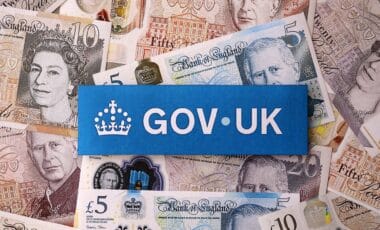The Department for Work and Pensions (DWP) has unveiled a new £1,000 penalty rule as part of a wider effort to combat benefit fraud and recover unpaid public funds. The changes, introduced through new legislation, expand the government’s ability to issue financial penalties and take action against those who owe money to the welfare system but refuse to repay.
Under the revised measures, the DWP will have the power to impose financial penalties without pursuing costly and time-consuming court proceedings, allowing authorities to act more swiftly against fraudsters. The policy also introduces stronger debt recovery mechanisms, including the ability to access bank statements and, as a last resort, disqualify individuals from driving if they repeatedly refuse to settle debts exceeding £1,000.
While the government insists these measures will protect taxpayers and ensure fairness, concerns have been raised about the potential for wrongful penalties, especially if genuine claimants are incorrectly flagged as fraudsters.
Financial Penalties Extended Beyond Benefit Fraud
Previously, the DWP could only impose financial penalties in cases of benefit fraud, meaning other fraudulent activity involving government payments often required prosecution. However, Work and Pensions Secretary Liz Kendall has confirmed that the new legislation significantly expands the scope of penalties, allowing the department to fine offenders across all DWP payments.
Speaking in the House of Commons, Ms Kendall stated:
“The fourth chapter of part 2 of the Bill is about widening our ability to punish fraudsters using a financial penalty as an alternative to seeking prosecutions. At the moment, we can issue financial penalties only in cases of benefit fraud.
“The Bill extends our ability to use them in cases of fraud against any type of DWP payment – for example, if we had any future scheme like the kickstart employment scheme. That will ensure that more fraudsters committing a wider range of fraud can be dealt with swiftly without going to court.”
This expansion means that individuals who attempt to defraud government initiatives beyond traditional benefits—such as employment schemes or grants—can now face immediate penalties rather than lengthy legal proceedings. The government argues this will act as a stronger deterrent, while also reducing the burden on the court system.
Debt Recovery: Stronger Enforcement for Those Who Refuse to Pay
Beyond new fraud penalties, the legislation also grants the DWP stronger powers to recover unpaid debts from individuals who have left the benefits system but continue to owe public money.
Until now, the government primarily relied on deductions through the social security system or PAYE (pay-as-you-earn) payroll to reclaim unpaid debts. However, those who become self-employed or rely on savings have often been able to evade repayment.
Ms Kendall explained the new approach to debt recovery, stating:
“Last but not least, the Bill gives the DWP more power to get back public money that someone owes in cases where they can repay it but repeatedly refuse to do so. This power does not cover people on benefits or in payrolled employment, because money can already be recovered through the social security or pay-as-you-earn systems.
“But for people who have moved off benefits and are not on PAYE – for example, because they are self-employed or now living off savings – the Bill will enable the DWP to request the bank statements of people we know owe us money but who have repeatedly refused to engage with us, to verify that they have sufficient funds to repay.”
This means that the DWP will be able to demand access to bank statements in cases where an individual refuses to cooperate, allowing officials to assess whether they have the means to settle their debts. If funds are available, the department will have the right to recover money directly from bank accounts, either as a lump sum or through structured deductions.
The government insists that this will be done in a fair and manageable way, ensuring that affected individuals have time to make representations and the right to appeal. However, campaigners have raised concerns about privacy and potential errors, particularly if genuine claimants are mistakenly pursued for debts they do not owe.
Driving Ban for Persistent Non-Payers
One of the most striking elements of the new policy is the introduction of driving disqualifications as a last resort for those who owe over £1,000 and refuse to engage with the DWP.
Under the new rules, if an individual continues to ignore repayment demands, the government can seek a court order to disqualify them from driving for up to two years.
Explaining the rationale behind this measure, Ms Kendall drew comparisons with the enforcement methods used by the Child Maintenance Service, which has had similar powers for 25 years:
“As a last resort, if someone owes us more than £1,000 and continues to repeatedly refuse to engage with us and agree how they will pay the money back, we can go to court and get an order to disqualify that person from driving for up to two years.
“This is the same power that the Child Maintenance Service has been able to use for the last 25 years in cases where a parent repeatedly refuses to make payments to support their child.”
While this penalty will not apply to all debtors, it is designed to target those who have the means to repay but deliberately refuse to do so. The government hopes that the threat of losing a driving licence will encourage compliance, ensuring that public funds are recovered more efficiently.
Concerns Over Fairness and Appeal Processes
While the DWP insists these measures will help protect taxpayer money, there are growing concerns about how fairly these new powers will be applied. Some campaigners fear that vulnerable individuals—including those with disabilities or complex financial situations—may struggle to challenge unfair penalties or debt recovery actions.
There are also concerns about the accuracy of fraud detection systems, with some fearing that genuine claimants could be wrongly penalised. Critics argue that automated fraud detection and administrative errors have already led to wrongful accusations in the past, and expanding financial penalties without strong oversight could increase these risks.
To address these concerns, the government has stated that there will be an appeals process in place for anyone who believes they have been wrongly penalised. However, advocacy groups are calling for greater transparency in how fraud investigations are conducted to minimise errors and ensure legitimate claimants are not unfairly punished.
A Tougher Stance with Significant Implications
The introduction of the £1,000 penalty rule, combined with stronger debt recovery and enforcement powers, marks a major shift in the government’s approach to tackling benefit fraud and unpaid welfare debts. While the DWP argues that these measures will improve efficiency and reduce fraud, concerns remain about fairness, transparency, and the risk of errors.
As these changes come into effect, the government will need to ensure that genuine claimants are not unfairly targeted, while also holding fraudulent claimants accountable. The success of this policy will ultimately depend on how well it balances fraud prevention with fairness, and whether it can effectively recover public funds without disproportionately penalising those who may be struggling financially.









